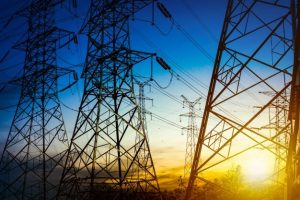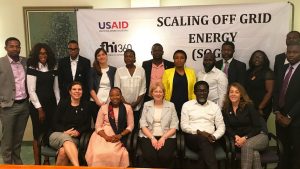Ogochukwu Okeke and Oluwole Hammond*
The National Aeronautics and Space Administration (NASA), states that “climate change is a long-term change in the average weather pattern that has come to define earth’s local, regional and global climates”. These changes have been observed in extreme changes in precipitation patterns, intense heat waves, and rise in sea levels. It quite differs from global warming, which is the rise in global temperatures due to the increasing concentrations of greenhouse gases in the atmosphere. A primary cause of climate change is the burning of fossil fuels, such as oil and coal, which emits greenhouse gases (GHGs) into the atmosphere – primarily carbon dioxide. Other human activities, such as agriculture, deforestation, waste disposal, and manure management cause the release of methane and nitrous oxide, as well as other major greenhouse gases that cause climate change.

Quite often, the concept of climate change is considered a foreign subject to Africa. It is viewed from a perspective that this disaster is only coming for the polar regions – the Arctic and Antarctic – depicted by melting permafrost and sea ice loss, and Australia raging with wildfires. However, contrary to this assumption, climate change is a reality in Africa as it is anywhere else in the world. According to a United Nations Fact Sheet on Climate Change, Africa is not when compared to other continents a significant emitter of greenhouse gas as Africa accounts for only 2–3 percent of the world’s carbon dioxide emissions from energy and industrial sources. The continent, however, is one of the most vulnerable to its effects of a changing climate. It is quite ironic that a continent that contributes the least to global warming is in line to be the worst hit by its effects and there are facts to back up the assertion that the African continent is most vulnerable to the impacts of climate change.
The continent is already experiencing an increase in temperature of approximately 0.7°C over much of the continent, and predictions show that these temperatures will rise further. Africa’s increased vulnerability to climate change is heightened by factors such as weak adaptive capacity, less developed agricultural systems and heavy dependence on ecosystem goods. The effects are seen with the growing cases of food insecurity, population displacement and stress on water resources. The Increasing temperatures, changing precipitation patterns and adverse weather conditions have had adverse effects on agriculture and extensive periods of drought have also deteriorated water quality and availability in most areas of Africa. Climate change also significantly affects population health across the continent. Persistent and increased rainfall due to changes in precipitation patterns increase habitat suitability for breeding biting insects that cause deadly diseases such as dengue fever, malaria and yellow fever.

However, there is light at the end of the tunnel as African countries are embracing climate change mitigation strategies. African countries such as Kenya, Rwanda, and Senegal have set ambitious aspirations to build climate resilient and low-carbon economies in their Nationally Determined Contributions (NDCs) to the Paris Agreement.The UN Climate Change secretariat is also helping countries to identify and manage climate risks through the formulation and implementation of National Adaptation Plans. To further curb this growing menace, there is a need for Africa to invest more in obtaining climate information devoted exclusively for the continent for better-targeted action. This is critical to building better climate change adaptation capacity. Another is the adoption of advanced agricultural systems such as crop diversification and solar-powered irrigation and the adoption of climate-smart agricultural practice to enhance food security.
In staying ahead of climate change and adaptation, high expertise human capital development of Africa’s populace is also necessary. This is why partnerships like that between Energy Club and Clean Tech Hub, through the Schools and Sustainability Program of the Hub is important. Through this collaboration, both entities are focused on building human capital, knowledge expansion and project and program ideation and incubation on issues around environmental sustainability, climate change and clean energy across Nigeria and in partnership with other hubs, across Africa. The aim is to develop solutions that solve the world’s most pressing developmental challenges and raise the generation of young sustainability leaders, whilst engaging in local designed projects and programs that directly address community needs.
*Ms. Ogochukwu Okeke is the President – Energy Club, University of Ibadan (UI).
*Mr. Oluwole Hammond is the Assistant Manager – Environment and Climate Action at Clean Technology Hub.





